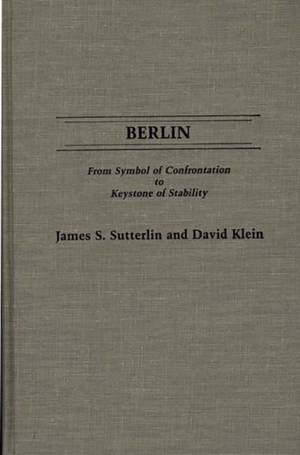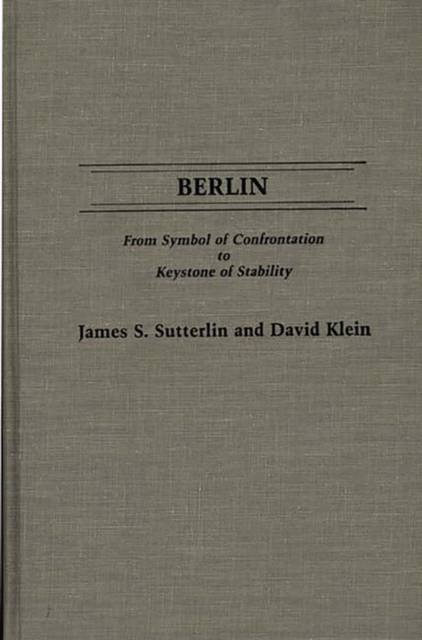
- Retrait gratuit dans votre magasin Club
- 7.000.000 titres dans notre catalogue
- Payer en toute sécurité
- Toujours un magasin près de chez vous
- Retrait gratuit dans votre magasin Club
- 7.000.000 titres dans notre catalogue
- Payer en toute sécurité
- Toujours un magasin près de chez vous
Berlin
From Symbol of Confrontation to Keystone of Stability
David Klein M D, James S SutterlinDescription
This book meticulously follows the volatile and frequently threatening relationship between the Western powers and the Soviet Union with regard to Berlin. The authors begin their study at that point when the State Department first considered the fate of Berlin during World War II and take the reader through to the 1971 Four Power Agreement that governs the present operation of the city ending with their assessment of its implications for the future. The book provides an in-depth understanding of the 1971 agreement as well as the disputes and interests which defined the major powers' positions on Berlin and, to a large extent, determined the city's post-war fate. The authors examine in detail the negotiations that culminated in the Four Powers Agreement and include much heretofore unpublished information stemming from their personal roles in the negotiating process.
Sutterlin and Klein contend that after the extended period of dangerous tension and confrontation surrounding Berlin after World War II, the four powers have succeeded in defining a modus vivendi for Berlin that has substantially improved the conditions of life for the residents of West Berlin and removed the city as a serious hindrance to the normalization of East-West relations. The book also asserts that the agreement led to more constructive relations between the Soviet Union and the United States in dealing with other world problems. At the same time the authors view the sensitive areas of the quadripartite relationship from the perspective of the East and West Germans presenting a situation less than totally satisfactory. The book assesses the negotiations leading to the 1971 agreement as successful from the Western perspective, and probably from the Soviet Perspective as well. The authors contend that the particular negotiating procedure followed by Henry Kissinger and other U.S. representatives were needlessly deceptive and dangerous as a precedent.Spécifications
Parties prenantes
- Auteur(s) :
- Editeur:
Contenu
- Nombre de pages :
- 243
- Langue:
- Anglais
Caractéristiques
- EAN:
- 9780275932596
- Date de parution :
- 03-11-89
- Format:
- Livre relié
- Format numérique:
- Genaaid
- Dimensions :
- 164 mm x 244 mm
- Poids :
- 580 g







